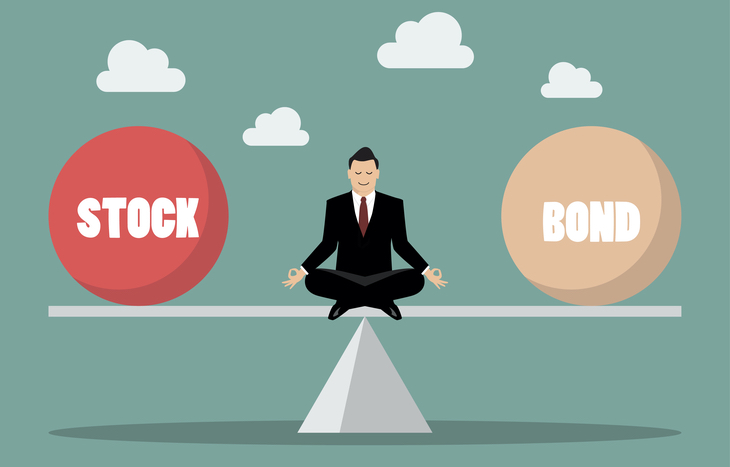What Is the Difference Between Stocks and Bonds?

Is there a difference between stocks and bonds? And if so, which is the better investment? These are questions that novice investors consider on a daily basis. Therefore, let’s breakdown each of these investment opportunities and discover how they stand apart from one another.

Primary Difference Between Stocks and Bonds
Stocks and bonds are often paired together in investing conversations. However, they differ greatly in terms of risk, reward potential and how they’re acquired. That’s why it’s so important to do your research before investing your hard-earned money.
So what is the main difference between stocks and bonds? A stock is a security that gives the investor fractional ownership of a business. Bonds, on the other hand, are loans from the investor to a corporation or government entity.
The key is recognizing how each of these investments generates profits. A stock must pay dividends, or its value must appreciate before the investor sells his or her shares, to generate profit. Most bonds, however, pay a fixed interest rate over a specific period of time.
This is a basic breakdown of the primary difference between stocks and bonds. Now it’s time to dig a little deeper to give you, the investor, a more complete understanding.
Investing in Stocks
The stock market is one of the best ways to generate passive income. But there’s a lot to learn before you begin investing for the first time.
Stocks represent equity in a company. Specifically, this is a partial ownership in the form of shares. Each and every share you purchase is a piece of the company. And the more shares you purchase, the more ownership you have.
So why do companies issue shares to the public in the first place? In most cases, this is to raise funds that will cover specific needs, innovations and the future growth of the business.
And once you’ve purchased a stock, you reap the rewards of that growth. Over the long term, the value of your stock will rise in correlation with the value of the company. However, your stock’s value will go down if the company begins to perform below expectations. You will lose money if you decide to sell your shares at that point.
This is the risk that you must take on as an investor. And it is the major difference between stocks and bonds.
Investing in Bonds
Bonds are much different from stocks. With bonds, you don’t receive any equity. You are simply providing a loan to a company or a government entity.
When a company or a government entity takes on debt, you can purchase a bond, from which you will usually receive interest payments on the loan over a set period of time. After this time expires, the company or government entity will pay back the total cost of the bond. This is called the principal, or par value, of the bond.
Sounds great, right? Not so fast. Bonds do come with the risk of bankruptcy. You will stop receiving interest payments if the company goes bankrupt before your bond’s expiration date. In addition, you may never get back the original cost of the bond in the first place.
And bonds’ time frames can vary drastically, from a couple of days to more than 25 years. Interest payments are distributed evenly throughout each year until the bond expires. This gives you a fixed income for a specific amount of time, depending on the interest rate. This rate will vary depending on the type and duration of the bond you purchase.
Capital Gains or Fixed Income
What is the main difference between stocks and bonds? It’s capital gains vs. fixed income.
Stocks can provide you with short-term or long-term capital gains if you sell the company’s shares at a higher price than you paid for them. What you do with this money is up to you. You can reinvest it in other stocks, use it to cover living expenses and much more.
Bonds generate a fixed income via interest payments. In general, these payments can come monthly, quarterly or semiannually. For example, Treasury bonds are commonly paid once every six months. In terms of corporate bonds, you may receive your payments monthly or quarterly.
Investing in Stocks and Bonds
Are you ready to begin investing in stocks and bonds? If so, sign up for the Investment U e-letter below. Our investing experts provide daily stock tips, analysis and investment education for traders of all experience levels.
When a stock price rises, the cost of bonds might fall. And when a stock price falls, bonds might rise. But these are both viable investment opportunities once you weigh the risks and rewards. As you can see, the difference between stocks and bonds is more drastic than you may have imagined.







2 Comments
[…] simple. There are all sorts of ways to invest. There’s property or real estate. Fixed interest or bonds are another way to invest. There are ways to invest now and set up streams of passive income. But […]
[…] The company needs to buy a new tractor, so it issues bonds to raise capital for that purchase. Bonds represent the means to acquire investment capital, while the tractor itself is the capital […]